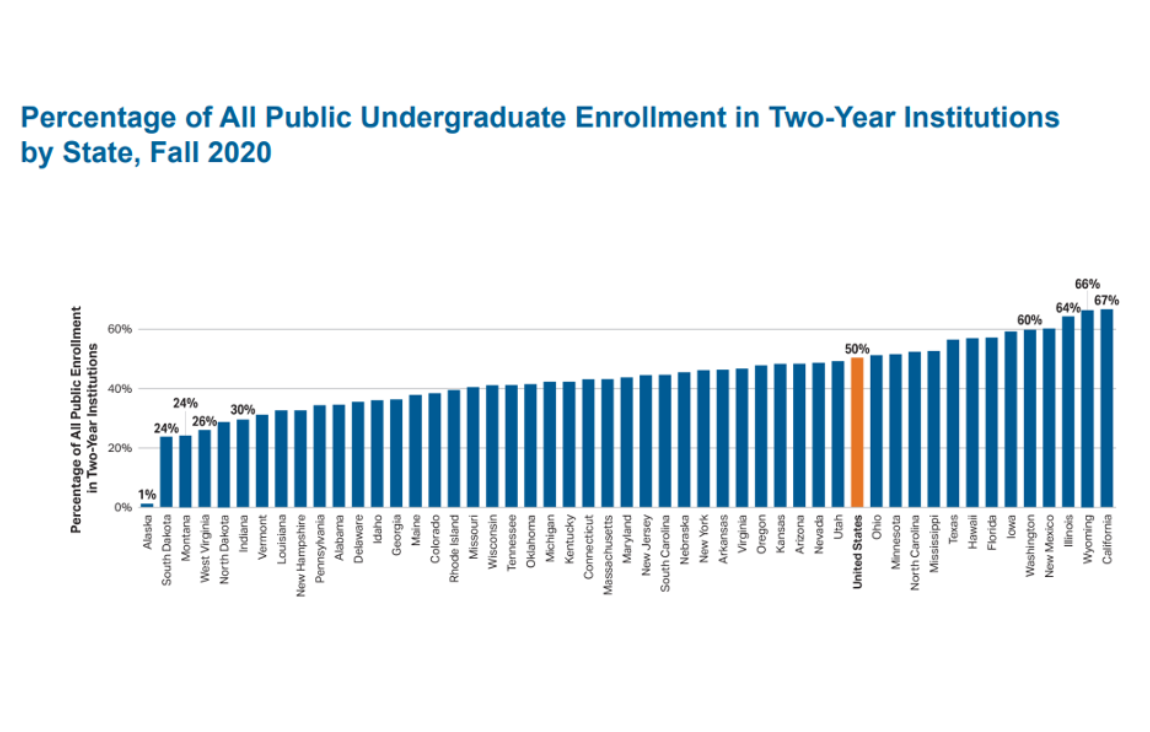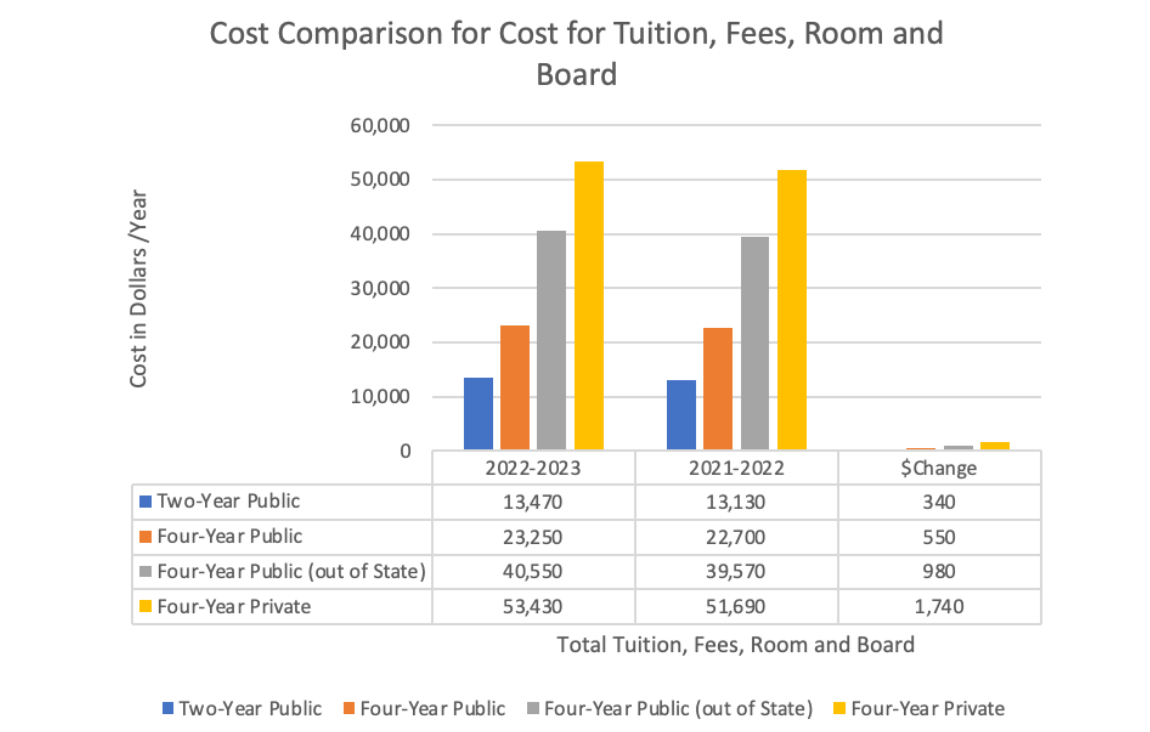As companies are switching to a “skills-based hiring” that is hiring more based on skills and experience, instead of four-year degrees, the value of two-year degrees is increasing.
Enrollment is declining at four-year schools … but it is increasing at two-year schools. How much is it increasing? The chart below tells the story.

Chart courtesy of College Board
Enrollment by state shows enrollment in two-year schools in all states were up from as little as 1% in Alaska to 67% in California. Across the whole U.S., enrollment was up on average 50%.
Changes in Degree Requirements
In the past many companies engaged in “degree inflation” by requiring four-year degrees for job that could be performed by new hires with two-year degrees. Why would companies do that? For one, it was easier to just require a four-year degree than it was to break out the actual skills needed to do that job.
But when the pandemic hit, it forced employers to reevaluate their hiring practices to get enough workers to keep the business running. Overall, employers dropped the four-year degree requirements for 46% of middle-skill jobs and 31% of high-skill jobs. And this degree drop did not just happen in a few select occupations; it happened in 66% of them. The four occupations that had the biggest declines in jobs that required four-year degrees were:
- Finance
- Business Management
- Engineering
- Health Care
Two of the leaders in using skills-based hiring are IBM and Google. In 2021, IBM took out four-year bachelor’s degree requirements out of more than half of their U.S. job postings. Google revamped its hiring practices and hardly any of their jobs now require a bachelor’s degree.
Goggle has been a leader in skills-based work with their Google Career Certificates program part of their Grow with Google Initiative. They believe that with the right training almost anyone can work at a proficient level in high demand jobs. More than 150 employers, including Walmart and Verizon, have signed up to recognize Google Career Certificates as part of their hiring practices.
Advantages of a two-year school
Another reason why enrollment is up at two-year school is that the cost of getting a four-year degree has put it out of reach for many students.
In the chart above, we can see that the tuition, fees, and room and board cost of attending a two-year school in the 2022/2023 academic year only rose $340 from the 2021/2022 rate, while four-year schools during the same time frame rose anywhere between $550 to $1,740.
Another appealing advantage is the time spent in school. A two-year degree student can graduate and have been in their field working for two years while a four-year degree student is still in school.
And because many four-year schools accept transfer credits from two-year institutions, the option to work toward a four-year degree later in time is still there.
Many jobs that require a two-year degree not only pay well in relation to the degree cost, but they have good job growth potential. Here is a sampling comparing some jobs that require a bachelor’s degree compared to some requiring a two-year associate degree.
| Job | Median Salary | Projected Job Growth |
| Bachelor’s degree | ||
| Human resources managers | $121,229 | 9 |
| Compensation and benefits managers | $125,130 | 4 |
| Airline and commercial pilots | $130,440 | 13 |
| Sales managers | $132,290 | 7 |
| Financial managers | $134,180 | 17 |
| Petroleum engineers | $137,940 | 8 |
| Natural sciences managers | $137,940 | 6 |
| Advertising and marketing managers | $141,490 | 10 |
| Architectural and engineering managers | $149,530 | 4 |
| Computer and information systems managers | $151,150 | 11 |
| Associate degree | ||
| Geological and hydrologic technicians | $50,630 | 9 |
| Respiratory therapists | $62,810 | 23 |
| Radiologic and MRI technologists | $63,710 | 9 |
| Avionics mechanics and technicians | $66,680 | 11 |
| Medical sonographers and cardio techs | $70,380 | 14 |
| Dental hygienists | $77,090 | 11 |
| Web developers | $77,200 | 13 |
| Nuclear technicians | $84,190 | 12 |
| Radiation therapists | $86,850 | 9 |
| Air traffic controllers | 130,420 | 4 |
Data Courtesy of the Bureau of Statistics
There are a lot of factors to consider when making a choice as to which degree is right for you. Veterans have the advantage in that both types of degrees are covered under the GI Bill. The decision then is the school, degree and area of study.





